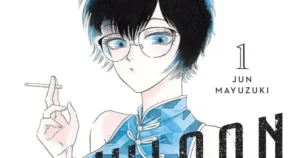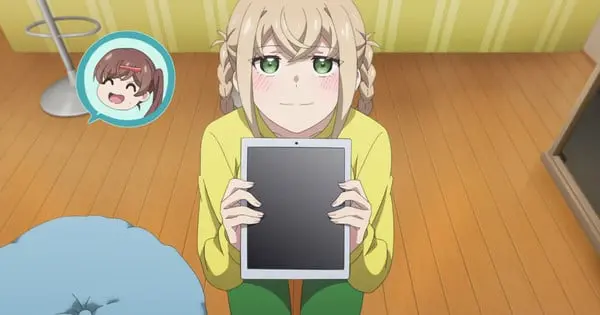The world of manga creation is often romanticized, but behind the polished panels and captivating stories lies a demanding, deadline-driven reality. “A Mangaka’s Weirdly Wonderful Workplace,” an anime series adapted from Kuzushiro’s manga, offers a charmingly honest glimpse into this unique industry through the eyes of rookie shojo mangaka Nana Futami. While deadlines loom and creative blocks threaten, the series maintains a humorous and heartwarming tone, celebrating the collaborative spirit and resilience required to succeed. Episode 5, titled “My Senpai Calls Herself My Rival,” delves further into these pressures, introducing a pivotal character who embodies both the challenges and unexpected camaraderie of the creative journey.
The Premise: Rookie Dreams and Industry Realities
“A Mangaka’s Weirdly Wonderful Workplace” centers on Nana Futami, a novice shojo manga artist who is finally seeing her beloved shogi manga, “Dear Subaru,” published. However, the path to publication is fraught with stress, stomach aches, and the daunting task of meeting relentless deadlines. Nana often finds herself grappling with storyboards, battling creative slumps, and even indulging in midnight snacks that lead to comical delusions. Fortunately, she is not alone in this endeavor. Her cool and reliable editor, Kaede Satō, and her talented assistant, Mizuki Hazama, provide a crucial support system, helping her navigate the high-pressure environment of the manga industry. The series beautifully captures the relatable struggles of creative work while highlighting the joy found in supportive colleagues.
Episode 5: “My Senpai Calls Herself My Rival” – A New Dynamic Arises
Episode 5 of “A Mangaka’s Weirdly Wonderful Workplace” injects a fresh dose of chaos and insight into Nana’s already eventful life. The episode focuses on Nana’s struggle to conceptualize a compelling rival character for her protagonist in “Dear Subaru.” Her inherently kind nature makes it difficult for her to imagine true rivalry, leading to a creative block that stalls her progress.
The Unexpected Arrival of Arisa Nashida
Just as Nana grapples with her fictional antagonist, a very real, very uninhibited rival crashes into her life: Arisa Nashida. Arisa, a former senior from Nana’s assistant days, stumbles into the workplace visibly inebriated and emotionally distraught. Her dramatic entrance reveals a significant personal setback: her own serialized manga has just been canceled. In her tipsy state, Arisa tearfully declares herself Nana’s long-standing competition, catching Nana completely off guard.
This seemingly outlandish event is a turning point, offering a glimpse into the often harsh realities of the manga industry, where even successful artists can face cancellation. Arisa’s meltdown is a chaotic mix of pride, insecurity, and genuine admiration, providing a deeply human glimpse into the emotional toll behind the creative process.
Comedy and Thematic Depth
The episode masterfully balances its comedic elements with raw honesty. Arisa’s larger-than-life personality and rapid shifts in vocal delivery, brilliantly portrayed by voice actress Yū Kobayashi, provide much of the episode’s humor. Kobayashi’s performance captures Arisa’s pomposity, distress, and everything in between, making her a memorable and cartoonish yet relatable character.
Beyond the laughs, Episode 5 delves into profound themes. Arisa’s situation highlights the emotional vulnerability of creators, dealing with depression and the upset of having a series abruptly end. Her bravado masks a deeper sadness, resonating with anyone who has faced professional disappointment. The episode subtly emphasizes the importance of continuing to work on something meaningful, even when the outcome is dictated by external factors.
The Evolving Workplace Dynamic
With Arisa temporarily homeless, Nana and her team offer her a spare room, instantly changing the workplace dynamic. This new addition not only provides Nana with an unexpected template for her fictional rival but also enriches the existing group. Arisa’s fiery energy complements Futami’s introspective overthinking and Mizuki’s quiet patience, creating a more dynamic and unpredictable environment.
Episode 5 of “A Mangaka’s Weirdly Wonderful Workplace” serves as a powerful reminder that the journey of a mangaka is one of constant evolution, punctuated by both triumphs and setbacks. It showcases how collaboration, empathy, and even unexpected rivalries can fuel creativity and help artists navigate the “weirdly wonderful” world of manga creation. The episode ultimately closes on a hopeful note, suggesting that even after cancellation, dreams can be rekindled, and new inspirations can be found in the most unlikely of places.









